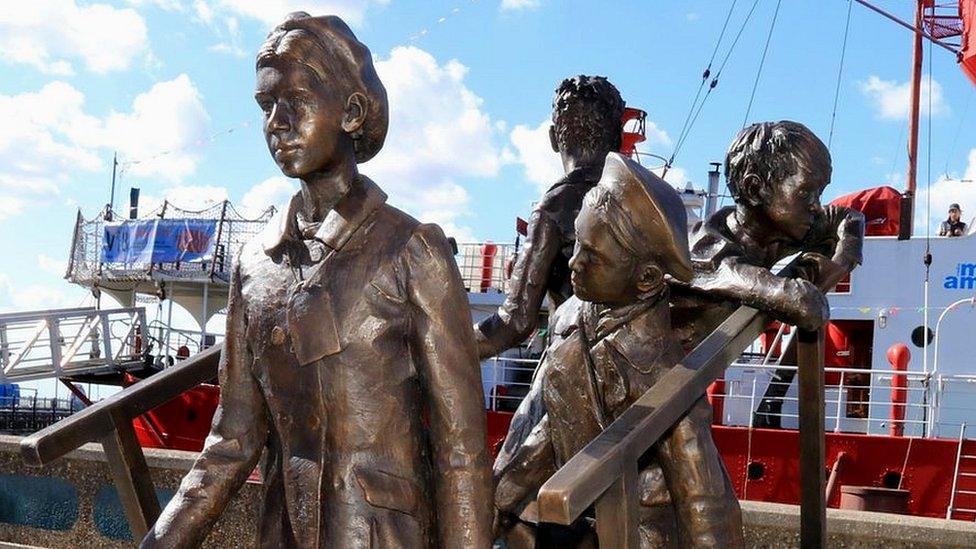Families recreate Kindertransport journey
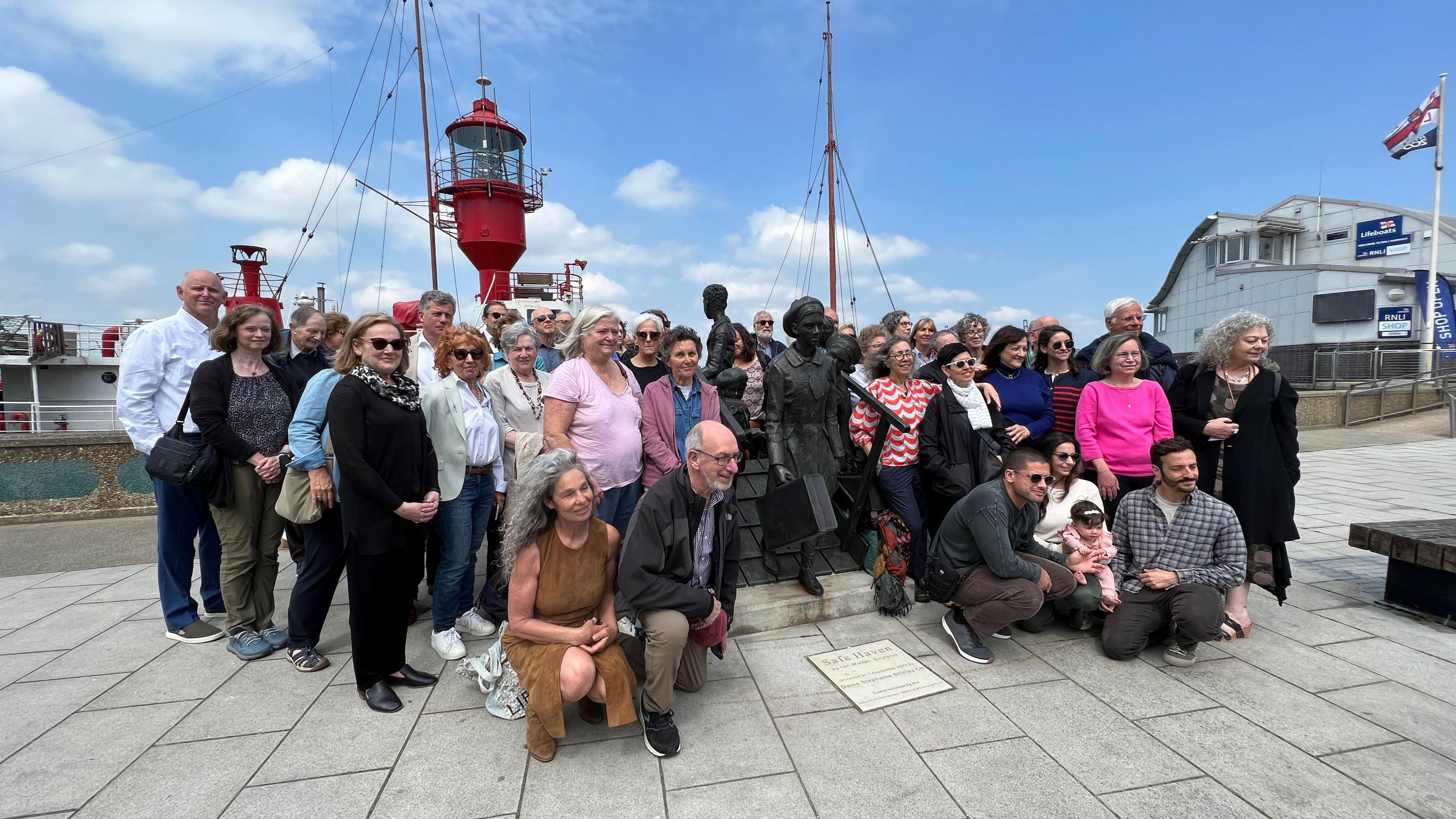
Families of 43 people saved from Nazi-occupied areas of Europe have recreated part of the journey of their Kindertransport relatives
- Published
Dozens of families of children who came to the UK seeking safety from Nazi Germany before the start of World War Two have recreated part of the Kindertransport journey.
The first children arrived at the port of Harwich in Essex on 2 December 1938.
Family members travelled between London Liverpool Street and Harwich on Monday as part of the commemorations.
Many said they were thankful for the project saving their loved ones.
What was Kindertransport?
The Kindertransport mission unfolded between November 1938 and September 1939, just before World War Two broke out.
It helped 10,000 children to escape from parts of Europe controlled by the Nazis.
The children had to travel alone, often leaving behind parents and other family members they would never see again.
Trains left Germany, Austria, Poland and Czechoslovakia full of children as young as five years old up to the age of 17.
Memorial statues have been placed at London Liverpool Street station and Harwich - both key points where children arrived.
'Walking in their footsteps'
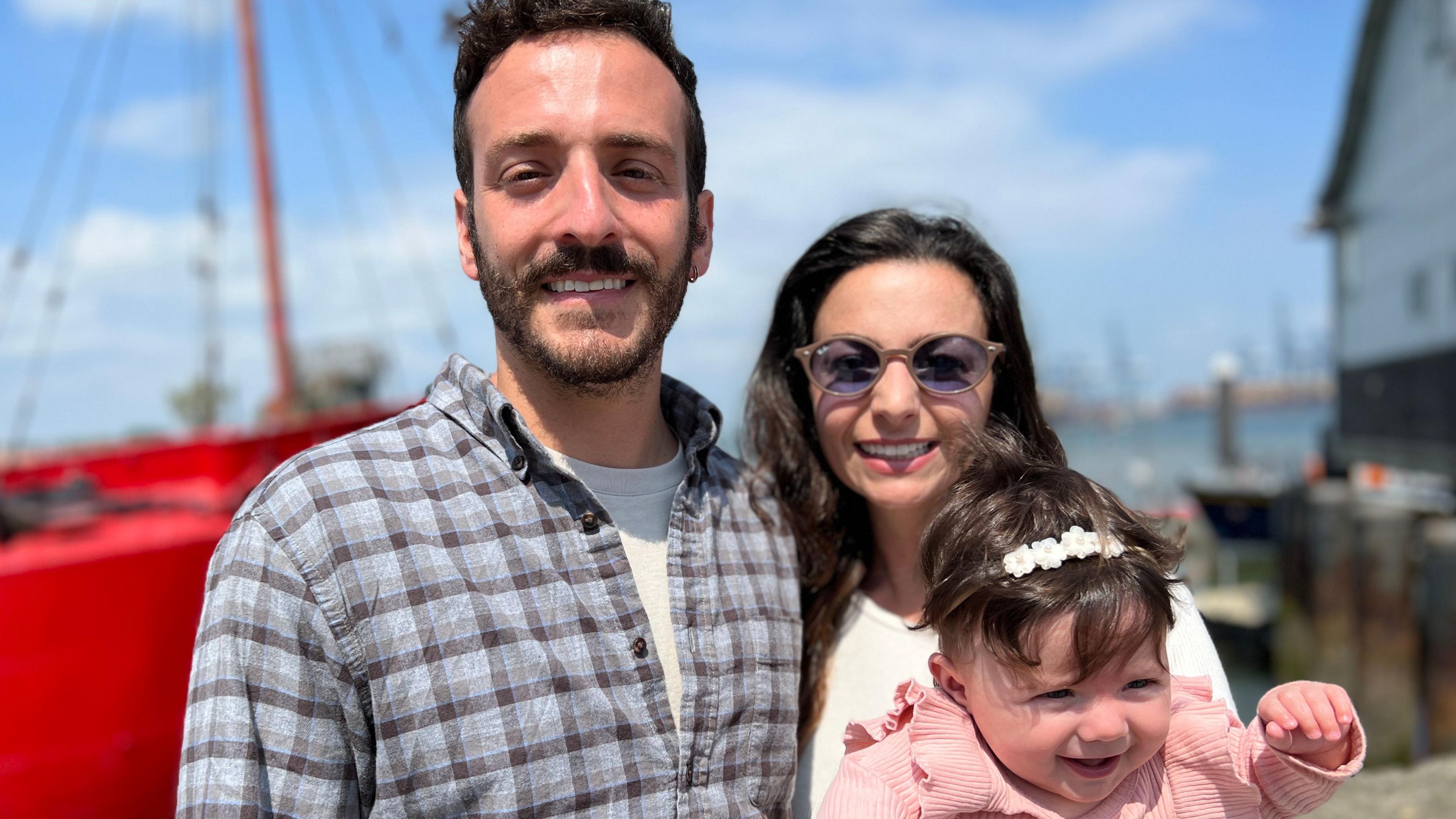
Siblings Brian and Kortney Spencer travelled from California to honour their grandmother Leisel, who was 16 when she came to the UK on a Kindertransport
Siblings Brian and Kortney Spencer's grandmother, Liesel Spencer, arrived into Harwich from Germany aged 16.
Mr Spencer said: "Being able to feel like I'm walking in my grandmother's footsteps when she came here, that's really special to me."
Ms Spencer, who brought her daughter Aila from California, recalled her grandmother telling her that when she left her parents she said goodbye believing they would be reunited one day in the United States.
However, like many Kindertransport children, she never saw them again.
As a mother herself now, Ms Spencer said she "can't imagine" what it must have been like for the parents.
She said: "I think it's so special [to be here].
"Now I'm a mom too, I have the opportunity to pass this to my baby and I'm sad she can't meet my grandmother but we can pass on her stories."
'People shouldn't forget'
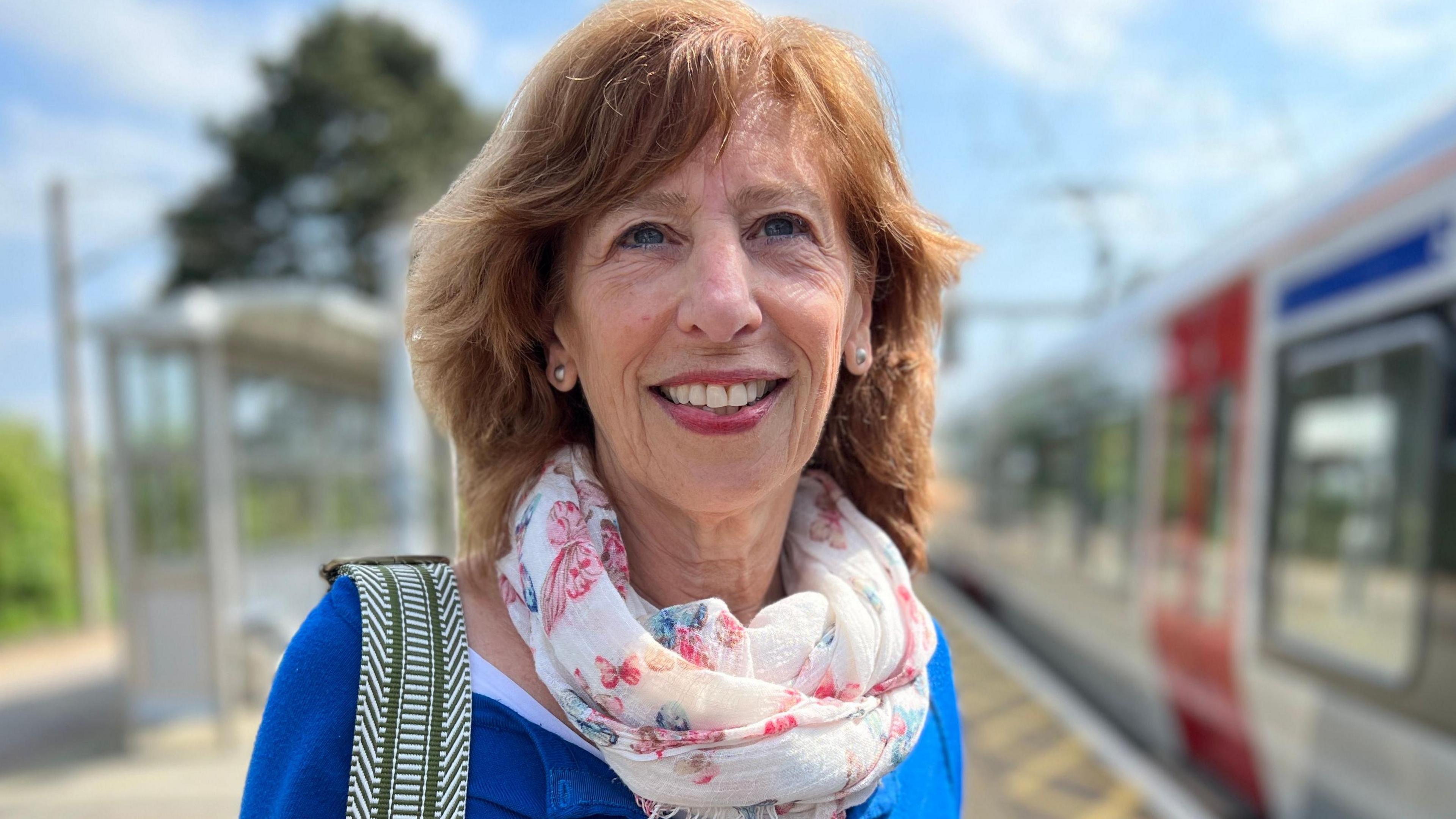
Lady Linda Reich said it was important the legacy of the Kindertransport continued
Sir Eric Reich came to the UK on a Kindertransport from Austria when he was four years old.
Sir Eric, of the Association of Jewish Refugees, died in 2022 but his widow said he believed in continuing to educate people about the project.
Lady Linda Reich said: "It saved his life obviously and he never saw his parents again.
"His father died in Auschwitz and his mother, he was never able to find out what happened.
"It's important and very special [to be here] and I feel it's really important the legacy continues," she added.
'A remarkable story'
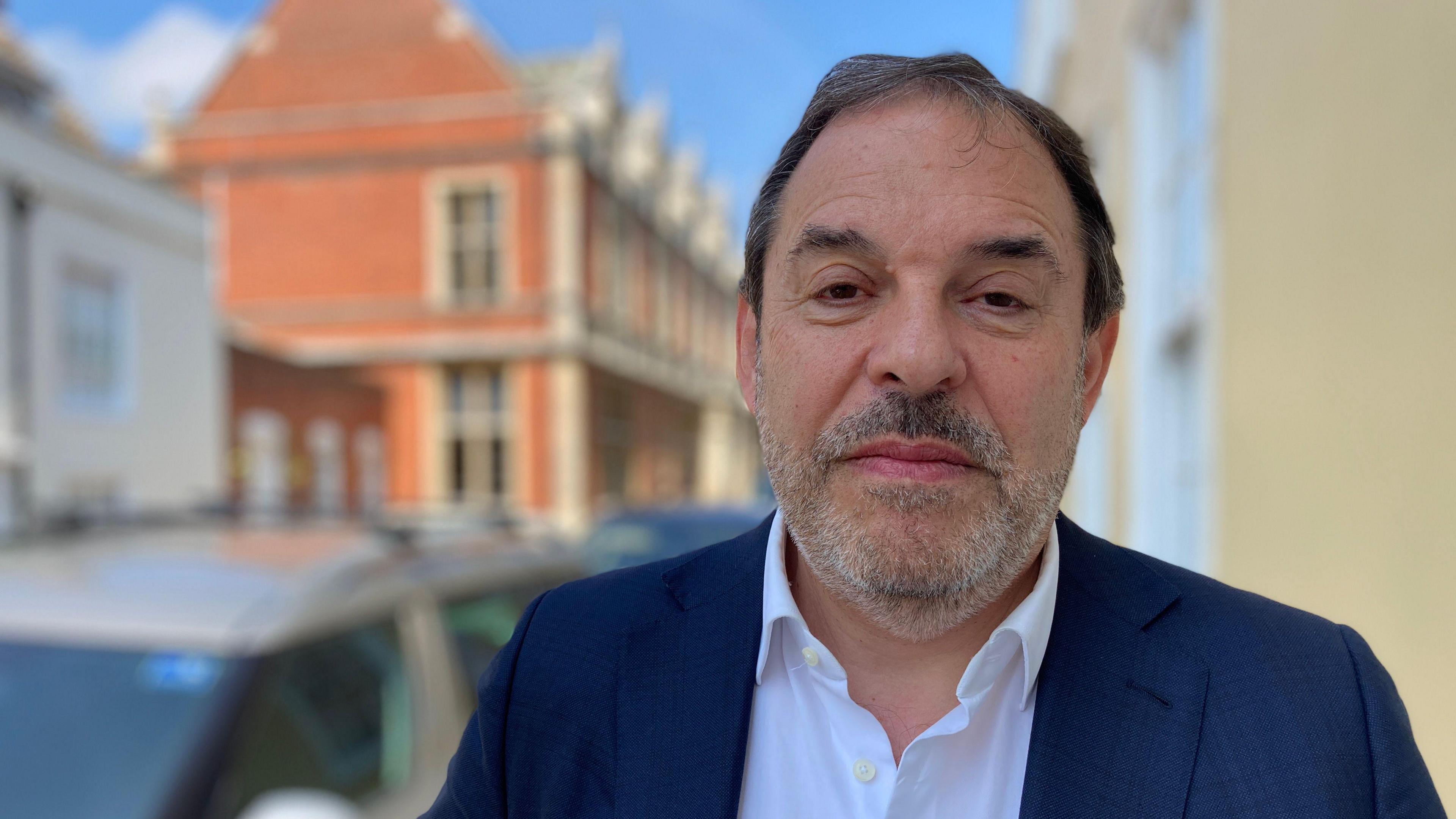
Michael Karp said Harwich's part in the Kindertransport project had been "under-appreciated" previously
Michael Karp, chairman of the Association of Jewish Refugees, said he essentially owed his life to the Kindertransport which saved his mother from Nazi occupied Austria in June 1939.
He said: "It's a remarkable story what happened with those 10,000 kids in the face of horrendous humanity, at least there was some decency.
"Ordinary people got together to secure the safety of the kids and I wouldn't be here if it wasn't for that and I'm eternally grateful."
He said he was glad to see Harwich's role in the project remembered having been "underreported and underappreciated over the years".
Follow Essex news on Facebook, external, Instagram, external and X, external. Got a story? Email eastofenglandnews@bbc.co.uk, external or WhatsApp us on 0800 169 1830
Related topics
- Published12 July 2019
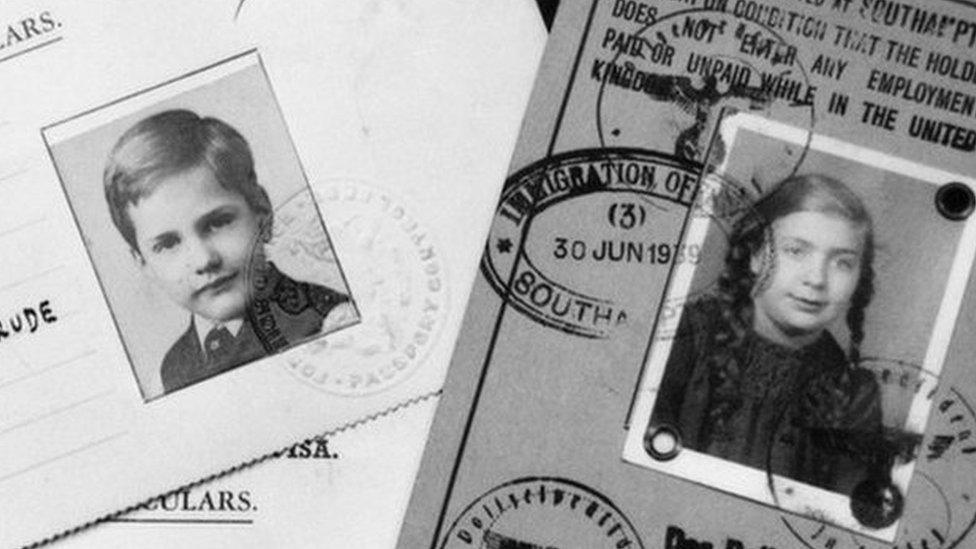
- Published29 January 2024
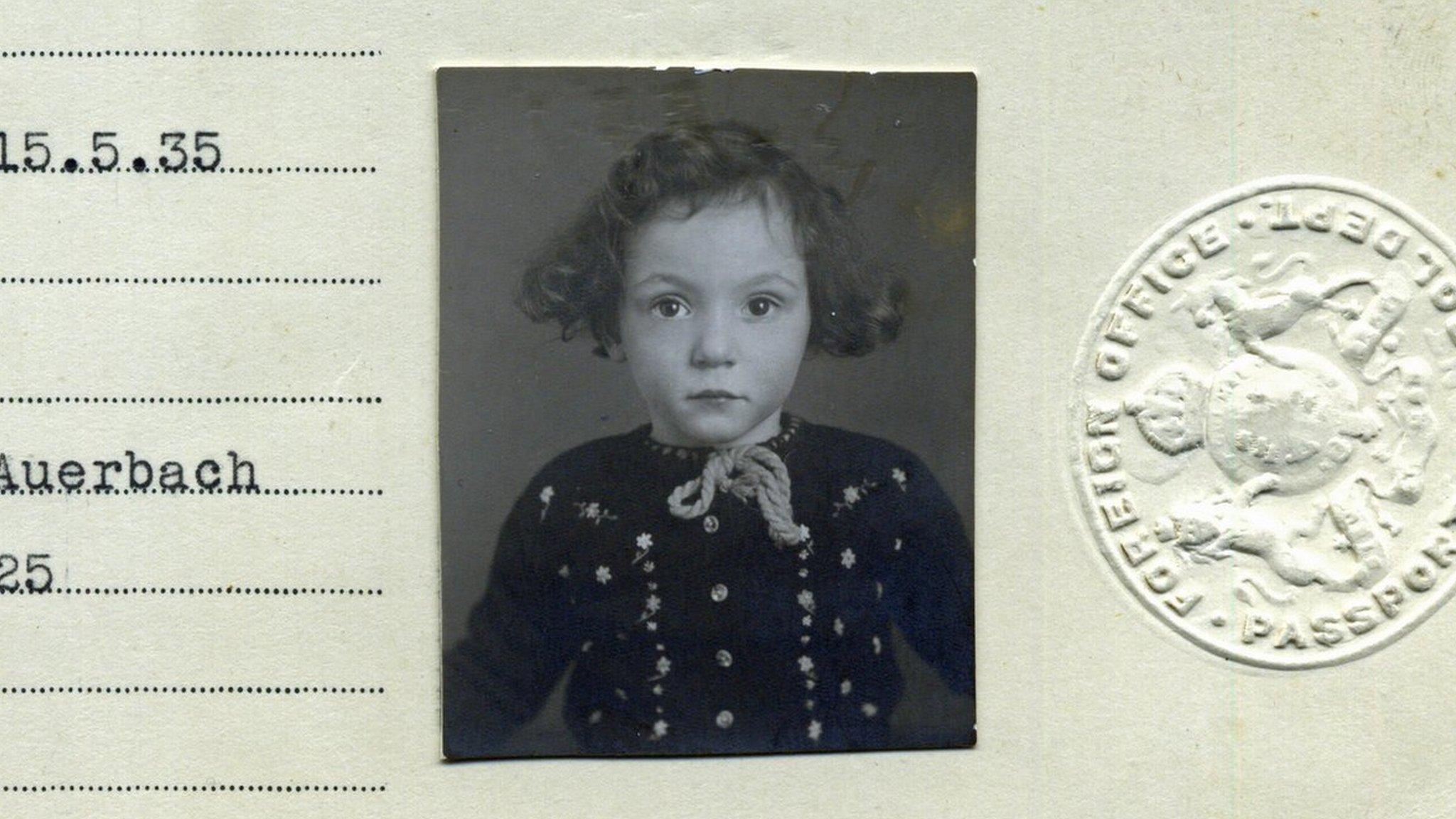
- Published1 September 2022
